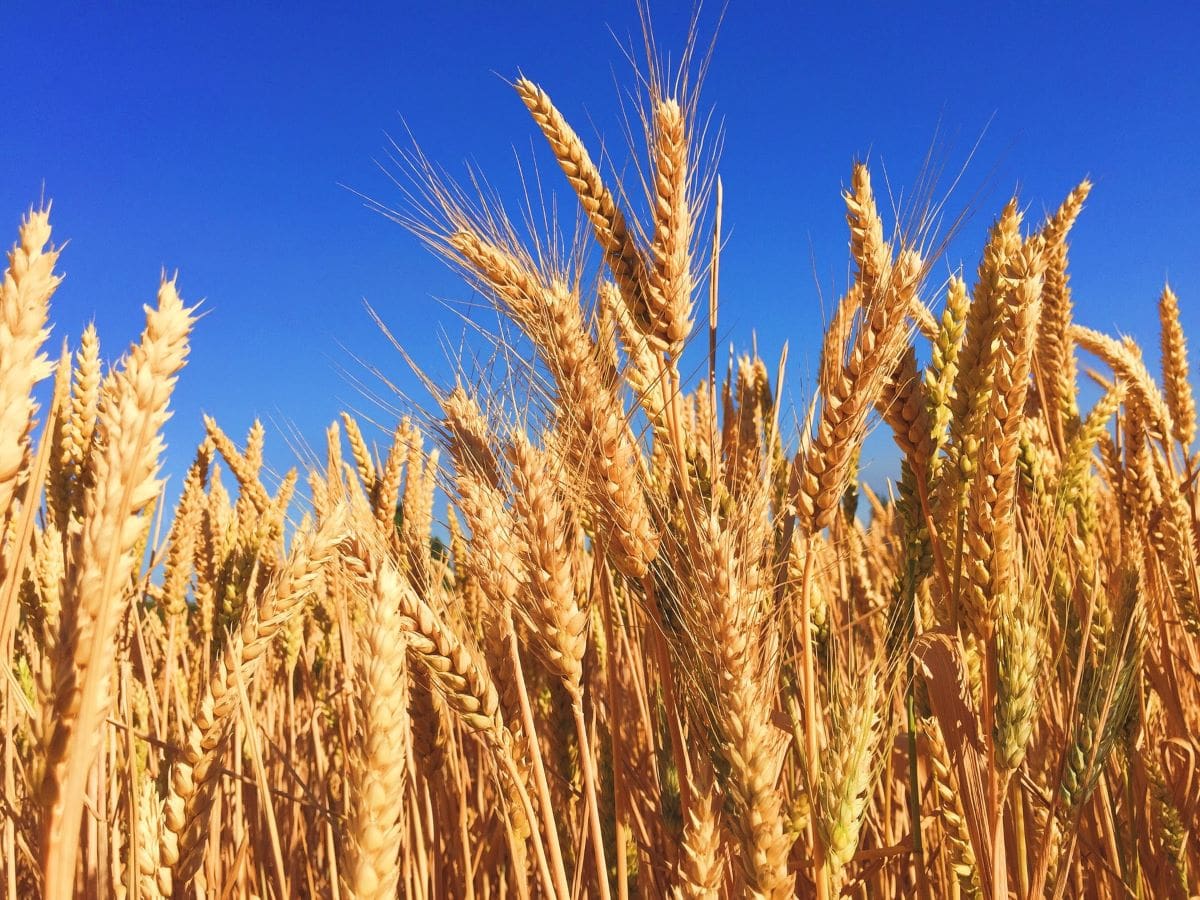Master, did you not sow good seed in your field? How then does it have weeds? (Matt. 13:27).
This is the central question in the Parable of the Weeds (Mt. 13:24-30). If God is so good and Christ is so mighty, then why is there so much evil in the world? This is a profound question, and it arises in every generation: Where does evil come from? Why does it persist, and even flourish?
You look at the weeds of evil in the world and you wonder: How can there be a God who is good when his world is in a mess like this? Is God really in control? Can I actually believe in a sovereign God in a world like this?
Isaiah says the coming Messiah will “proclaim the year of the Lord’s favor, and the day of vengeance” (Is. 61:2). Early on in Jesus’ ministry, He got up and read this, but stopped halfway through the verse! What about the day of vengeance? Grace comes with Jesus now; judgment comes with Jesus later. What’s going to happen between now and then?
Both Good and Evil are Growing
Let both grow together until the harvest (Matt. 13:30).
According to Jesus, evil will grow alongside the good until the return of Christ. We need this wisdom to understand the nature of this world and to sustain a lifetime of ministry.
The 20th century started with an extraordinary humanistic optimism. Charles Darwin captured the imagination of millions with the publication of his Origin of the Species, and the idea that the human race is evolving, we are getting better and better, moving towards a golden age (the 20th century. But within 14 years of the turn of the century there was the First World War and the appalling loss of life in the trenches. People said, this will be “the war to end all wars.” But within 20 years, it started again. We were not halfway through the great new century and we had two world wars, the likes of which had never been seen before.
The establishment of the United Nations meant that everything was going to be ok. But with the Cold War and the Cuban Missile Crisis, the whole world was on the brink of annihilation. Then, as we got near the end of the bloodiest century in human history, there seemed to be a shining hope: The Berlin Wall came down. There was going to be a “new world order.” There was going to be peace and the kind of world we could all enjoy.
Within a few years of moving into the new century, the headlines were full of a new kind of war, the “war on terror.” Look at world history and you will see that every time evil gets pushed down, it rises up again in another, more sinister form. The only people who should not be surprised is Christians! The world never changes. It is always a field in which the wheat grows alongside the weeds. But there will be a harvest! It is worth planting the good seed because God will make it grow even in this troubled world.
Is this world getting better or is it getting worse? Both! This world is getting better and it is getting worse at the same time! The good seed is growing and producing an abundant harvest. The grain on one stalk is much more than the little seed that was cast into the ground. And the weeds are growing too. With every week that passes they are larger and more deeply rooted than before.
Ronald Wallace says, “Jesus Christ never taught that the movement of earth’s history would take the form of a slow but steady development of the good upon this earth accompanied by the gradual elimination of evil. He taught rather that the more the good developed, the more evil might also develop to ripen with the good. [1]
God Will Gather the Harvest
At harvest time I will tell the reapers, “Gather the weeds first and bind them in bundles to be burned, but gather the wheat into my barn (Matt. 13:30).
We are living in the day of God’s grace. The Day of Judgment has not yet come, and until that day, this is what the kingdom will look like: Good wheat in a field laced with weeds.
It has become popular, especially among younger Christians, to talk about “bringing in the kingdom,” or to set things right in the world. It’s important to remember that “bringing in the kingdom” means pulling up the weeds, and breaking up the great power structures of evil in this world. That work of judgment belongs to Christ. He has not given it to us to do. Instead, He calls us to live and grow in this world until He comes and brings about a righteous judgment in which all will be brought to account before Him. That day will come, and when it does, the weeds will be gathered and bound together in bundles.
Matthew Henry says, “Sinners of the same sort will be bundled together in the great day.” There will be a bundle of cynics, a bundle of blasphemers, a bundle of cowards, a bundle of liars, and a bundle of hypocrites. But the wheat God will gather into His barn.
What to Do While You’re Waiting
What are believers to do as we anticipate Christ’s return? How can we live faithfully and grow in this world?
Stay Engaged
Christ anticipates that your roots as a believer will be intertwined with the roots of people whose nature is very different from yours. That will be true at school and in business. You will find, even in your own family, that there are relationships that are very difficult, but your roots are intertwined. Jesus says, “Don’t pull up the roots. Let both grow together until harvest.”
So, don’t be on an agenda of withdrawal from the world. There are no ideal spots in this world. Wherever Christ sows His people, Satan sows his weeds. Where have you been sown? Bloom where you are planted! Augustine said, “Those who are weeds today may be wheat tomorrow.” [2]
Practice Tolerance
The word “tolerance” has been hijacked in our culture. It used to mean showing patience and forbearance towards people with whom you radically disagree. Now it is used to mean affirming what others affirm. But there is no need for tolerance between people who affirm the same convictions. If you agree, what is there to tolerate?
Tolerance is a wonderful Christian virtue that is needed where there are deep seated disagreements. It means showing patience and forbearance toward people you find really difficult and with whom you radically disagree. But, it does not mean passivity or that you give up concern for another person’s spiritual condition. Jesus makes it clear that, in this world, the wheat needs to grow alongside the weeds until the Son of Man comes.
Remember Our Mission
Always remember, the mission of the church is sowing seeds not pulling weeds. We have a big enough challenge on our hands trying to deal with sin in our own hearts, our own families, and our own churches. It is not in our power or in our calling to root it out in the world. That is the work of Christ, and He will do it when he comes.
God will harvest the wheat. He will bring His people home, and the righteous will shine like the sun. With whom will you be bundled on that day? May you be found in the bundle of life with the people of God who submit their lives to King Jesus and stand before the Father in the grace that they find in him.
Then the righteous will shine like the sun in the kingdom of their Father (Matt. 13:43).
_____
1. Ronald Wallace, Many Things in Parables (Wipf & Stock, 1997), 35.
2. Cited in J. C. Ryle, Expository Thoughts on the Gospels (Crossway, 1993), 147.
If Jesus offered to tell you “secrets of the kingdom of heaven” for your ministry, would you listen? Join Pastor Colin Smith for the free course Sustaining a Lifetime of Ministry where he unpacks Jesus’ Kingdom Parables of Matthew 13 that help us embrace God’s perspective on gospel ministry.





